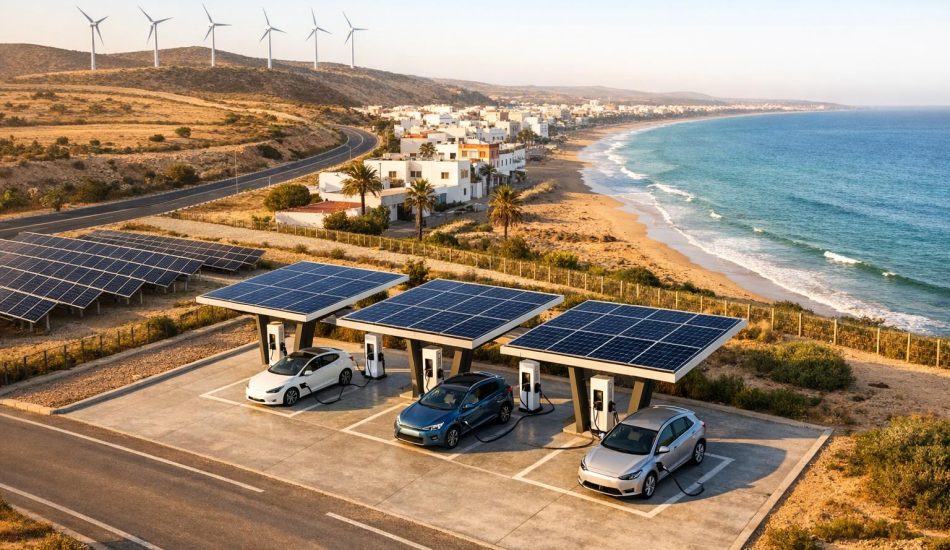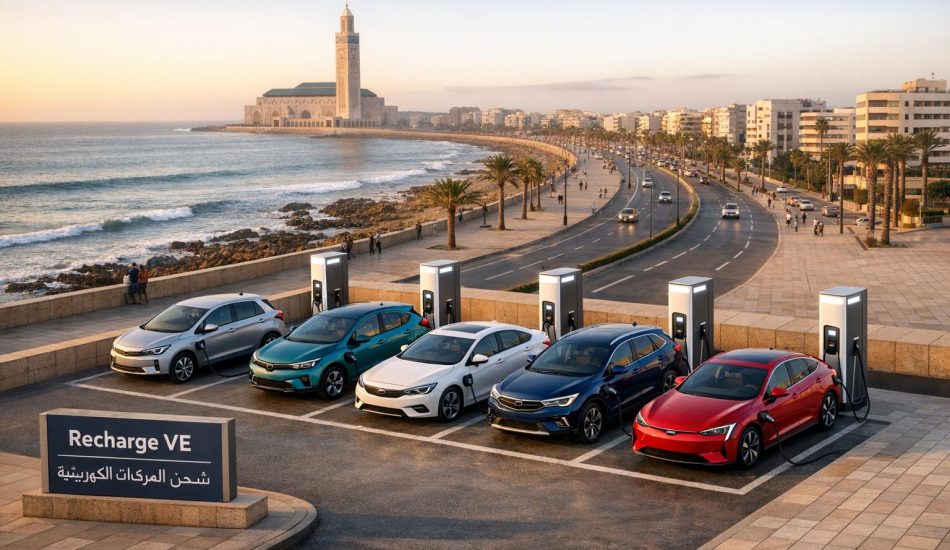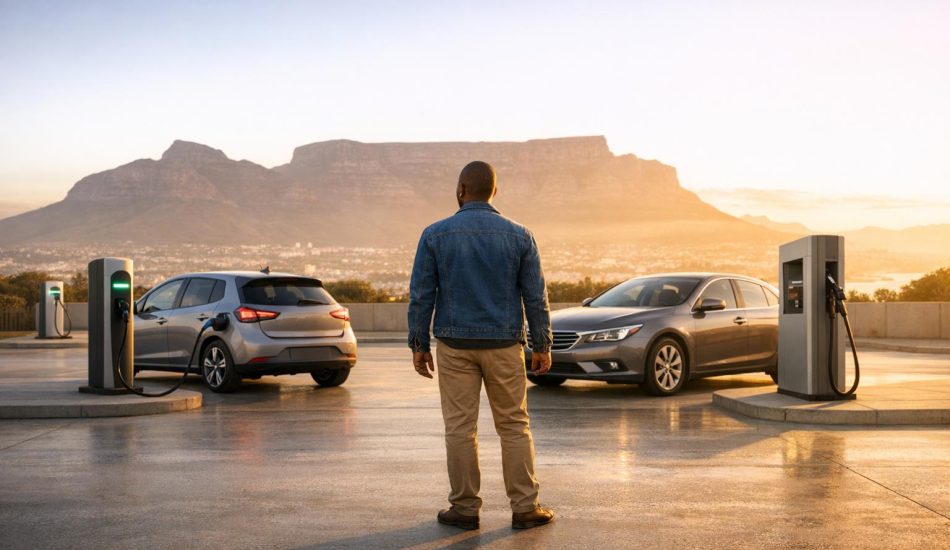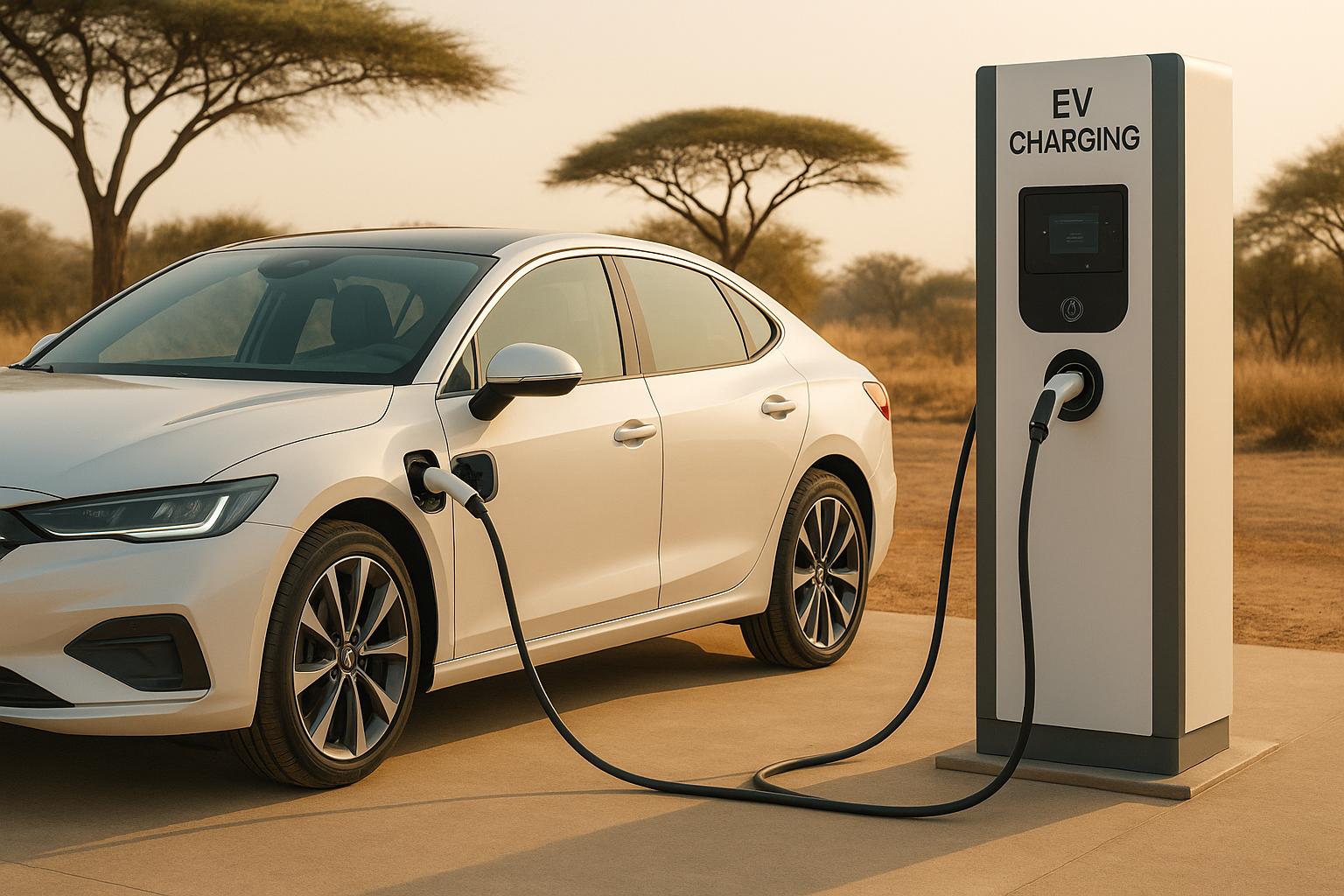
Electric cars are becoming more common in Zambia, with government incentives, affordable charging, and expanded infrastructure driving demand. As of July 2025, EV registrations surged by 330% compared to 2023, thanks to tax breaks and growing local support for renewable energy. Zambia is also positioning itself as a regional hub for EV production, leveraging its rich mineral resources for battery manufacturing.
Here’s what you need to know about electric cars in Zambia:
- Popular Models: Options include BYD Dolphin ($15,000–$16,500), Nissan Leaf (used: $10,000–$14,000), and Tesla Model 3 ($38,000–$45,000).
- Charging: Lusaka and Ndola are leading with fast-charging stations, with rural areas gradually gaining access.
- Government Policies: No customs duties on EV imports, reduced fees for hybrids, and incentives for EV businesses.
- Buying Options: Dealers like Pilatus Electric Mobility and platforms like EV24.africa offer new and used EVs with financing and after-sales support.
Switching to an EV in Zambia is now easier and more affordable than ever, with options to suit various budgets and needs.
Driving The First Electric Car In Zambia:BYD Dolphin 🐬 In Zambia
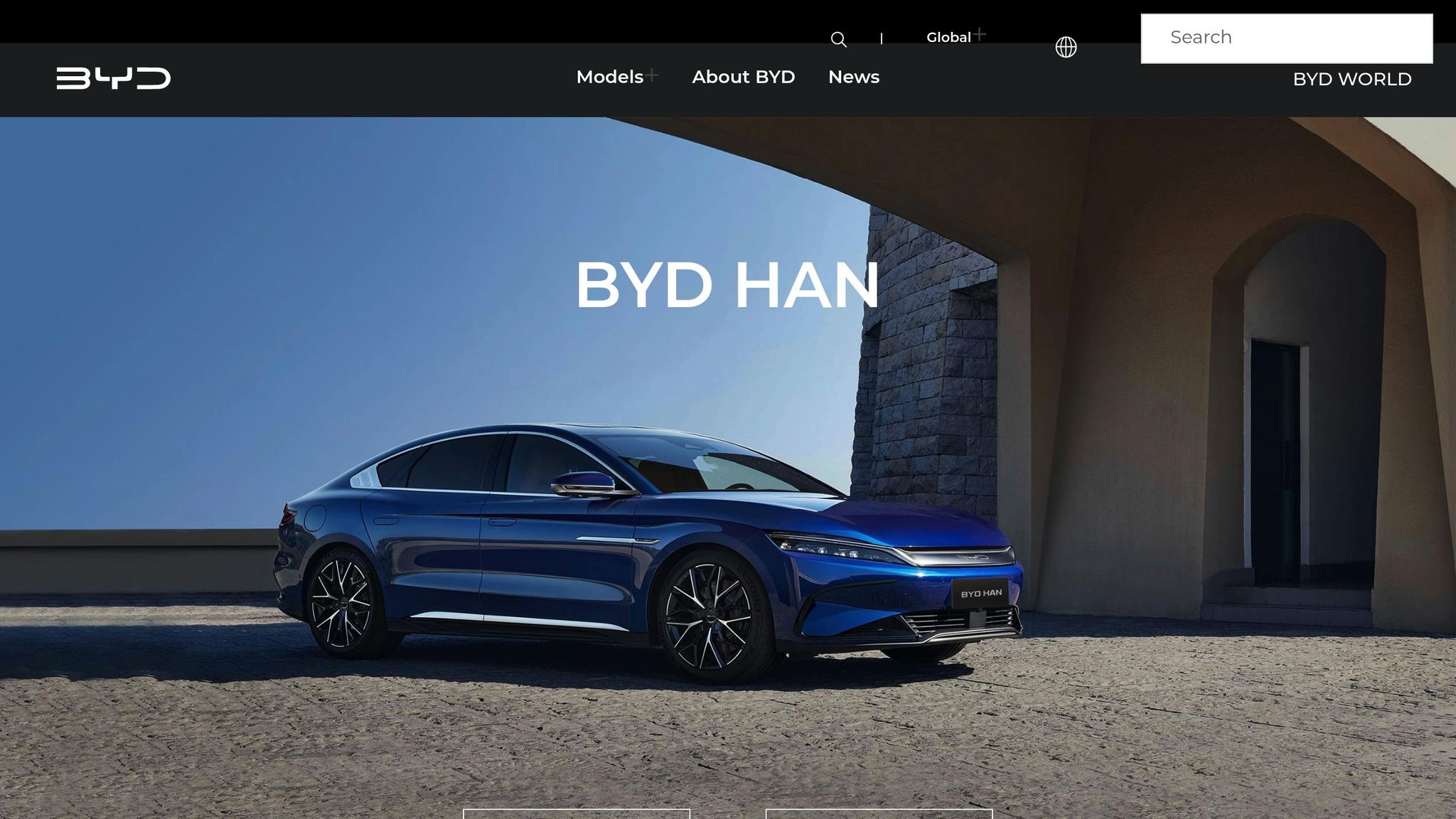
Zambia’s Electric Vehicle Market in 2025
Zambia’s electric vehicle (EV) market is rapidly evolving. The country is positioning itself not just as a growing consumer base for EVs but also as a potential manufacturing hub for the region. This shift signals exciting developments in both consumer adoption and local production.
Market Growth and Adoption Numbers
Zambia is transitioning from early EV adoption to a broader embrace by consumers. The market now includes a diverse range of EVs, such as passenger cars, motorcycles, and commercial vehicles. A notable development is the entry of global EV giant BYD, which partnered with Pilatus Electric Mobility Zambia Limited to tap into the market. Additionally, Juncheng Design, a Chinese company, is assessing the feasibility of establishing an EV assembly plant in Zambia, initially focusing on electric motorcycles and bicycles. These initiatives highlight the growing interest in Zambia as a key player in the EV space.
Government Policies for EV Support
The Zambian government has introduced tax and duty reductions for EVs, making them more accessible to consumers. Beyond this, officials are actively courting international manufacturers to establish EV component plants near the country’s copper mines. This strategy aligns with Zambia’s broader goal of moving up the value chain – shifting from exporting raw materials to playing a critical role in the global EV supply chain.
In a significant step, Zambia has entered a trilateral agreement with the Democratic Republic of Congo (DRC) and the United States to create an integrated EV battery value chain. This agreement focuses on processing essential minerals locally, further solidifying Zambia’s commitment to developing a strong EV ecosystem. These policy measures, paired with ongoing infrastructure improvements, underscore the country’s dedication to fostering a sustainable EV industry.
Charging Infrastructure and Power Supply
To support the growing EV market, Zambia is upgrading and expanding its charging infrastructure in key cities like Lusaka and Ndola. These improvements aim to make EVs more practical for everyday use and enable longer-distance travel, ensuring the market’s continued growth.
Electric Car Models Available in Zambia (2025)
The electric vehicle (EV) market in Zambia is growing, offering drivers a variety of options for making the switch to electric mobility. Both well-known manufacturers and newer brands are introducing models tailored to different budgets and driving needs.
Main Models and Specifications
Getting familiar with the key features of each model is crucial for assessing their value in Zambia’s developing EV market.
The BYD range is a standout in Zambia. One BYD sedan is built for long-range trips and efficient charging, making it ideal for both daily commutes and intercity travel. Another BYD model focuses on blending strong performance with energy efficiency, designed to handle local road conditions with ease.
The Nissan Leaf remains a trusted option for those exploring EVs for the first time. Its balanced driving range and fast-charging capabilities have earned it a reputation as a dependable and user-friendly choice for Zambian drivers.
European craftsmanship is represented by the Renault Scenic E-Tech, a compact SUV that features higher ground clearance and a durable design. It’s well-suited for navigating everything from city streets to more rugged rural areas, making it a versatile option.
For buyers on a tighter budget, the DongFeng Aeolus range offers an affordable way to enter the EV market. These models are aimed at families looking for economical yet reliable electric cars.
Model Comparison Overview
Each model differs in areas like driving range, battery capacity, charging times, warranty coverage, and overall performance. However, all models are compatible with both public and home charging setups. This flexibility ensures that owners can meet their transportation needs efficiently, whether they’re running errands in the city or taking longer trips.
These distinctions set the foundation for understanding the pricing strategies explored in the next section.
sbb-itb-99e19e3
Electric Car Prices in Zambia (2025)
Electric car prices in Zambia depend on several factors, including the model, condition, and additional costs. These factors play a big role in shaping the decision-making process for buyers transitioning to electric vehicles.
New and Used EV Price Lists
The Zambian electric vehicle market offers a range of options, from budget-friendly models to high-end luxury vehicles.
New electric cars come with higher price tags but include full warranties and the latest technology. For example, the BYD Dolphin is priced between $15,000–$16,500 (ZMW 320,000–350,000), while the more upscale BYD Seal costs around $30,000–$32,000 (ZMW 650,000–700,000). If you’re after a luxury option, the Tesla Model 3 is available for $38,000–$45,000 (ZMW 820,000–970,000).
For those on a tighter budget, the ROX models start at $13,000–$15,000 (ZMW 280,000–320,000). These entry-level cars provide an affordable way to join the electric vehicle movement without sacrificing essential features.
Used electric cars offer even more affordable options. Models like the Nissan Leaf and older BYD vehicles can be found for $10,000–$14,000 (ZMW 215,000–300,000), depending on factors like mileage and battery condition. A used BYD Dolphin typically costs $10,000–$13,000 (ZMW 215,000–280,000), while a pre-owned Tesla Model 3 ranges from $28,000–$35,000 (ZMW 600,000–750,000).
| Model | New Price (USD) | New Price (ZMW) | Used Price (USD) | Used Price (ZMW) |
|---|---|---|---|---|
| BYD Dolphin | $15,000–$16,500 | 320,000–350,000 | $10,000–$13,000 | 215,000–280,000 |
| BYD Seal | $30,000–$32,000 | 650,000–700,000 | $22,000–$26,000 | 475,000–560,000 |
| Tesla Model 3 | $38,000–$45,000 | 820,000–970,000 | $28,000–$35,000 | 600,000–750,000 |
| ROX (budget model) | $13,000–$15,000 | 280,000–320,000 | $9,000–$11,000 | 190,000–235,000 |
Several factors influence these prices, as explained below.
What Affects EV Prices
A variety of elements contribute to the overall cost of electric vehicles in Zambia. Shipping fees are a significant factor, with buyers choosing between RoRo (Roll-on/Roll-off) shipping and container shipping. Additionally, the choice of delivery method – port-to-port or door-to-door – can impact the final cost.
Customs clearance also adds to the expense, although the removal of customs duties in July 2023 has made electric cars more affordable. Buyers must also account for local registration fees, which vary based on the car’s specifications and value.
Currency fluctuations between the Zambian Kwacha and the US Dollar are another important factor. Since most EVs are imported and priced in USD, a weaker Kwacha increases the local cost of these vehicles.
For used cars, battery health and age play a crucial role in determining price. Buyers should carefully inspect the battery’s condition, as replacements can be costly. Other factors like mileage, model year, and overall condition also influence resale value.
Dealer fees and markups can vary significantly and may add thousands of dollars to the final cost. Other import-related expenses, including insurance and handling fees at ports, also contribute to the total price.
Payment and Financing Options
Zambia offers several payment and financing options to make electric vehicle ownership more accessible. Cash payments often yield the best deals, as dealers may provide discounts for upfront payment. However, financing options allow buyers to spread costs over time.
Local banks offer structured financing plans, typically requiring a down payment of 20% to 40% of the car’s value. Interest rates and loan terms depend on the buyer’s credit history and the bank’s policies.
Online platforms like EV24.africa have introduced transparent pricing models and flexible payment solutions, consolidating import and delivery costs into clear, upfront quotes.
"Transparent Pricing & Financing Options" – EV24.africa
Some dealerships offer installment plans, allowing buyers to pay monthly with varying terms and interest rates. Businesses looking to electrify their fleets may benefit from corporate financing options, which often feature better terms due to bulk purchasing. Leasing is another option, though it remains less common in Zambia’s market.
As demand for electric vehicles grows, financial institutions are developing new lending products to support buyers, making EV ownership more accessible than ever.
Where to Buy Electric Cars in Zambia
Buying an electric vehicle in Zambia has become more accessible as the market expands, with a growing number of registrations. Today, buyers can choose from traditional dealerships, private sellers, and online platforms, each offering unique advantages.
Dealerships and Private Sellers
If you’re looking for in-person service, Pilatus Electric Mobility Zambia Limited in Lusaka is the official BYD dealer. They offer models like the BYD Dolphin, BYD Seal, BYD Shark, and BYD Dolphin Surf. Along with vehicle sales, they provide financing options, warranty coverage, and after-sales support to ensure a smoother ownership experience.
Another major player is CFAO Mobility Zambia, also based in Lusaka. They specialize in Toyota’s hybrid and electric vehicles, offering sales, maintenance services, and warranty support.
For those exploring used EVs, private sellers and independent importers can be a good option. However, it’s important to carefully inspect the battery’s condition and verify all import documentation before making a purchase. Autocraft Japan is one such importer, focusing on used electric vehicles from various manufacturers. While they handle the import process, their after-sales support is typically less comprehensive than that of authorized dealerships.
Online platforms, meanwhile, are making it even easier to browse and buy EVs from the comfort of your home.
EV24.africa: Online EV Marketplace
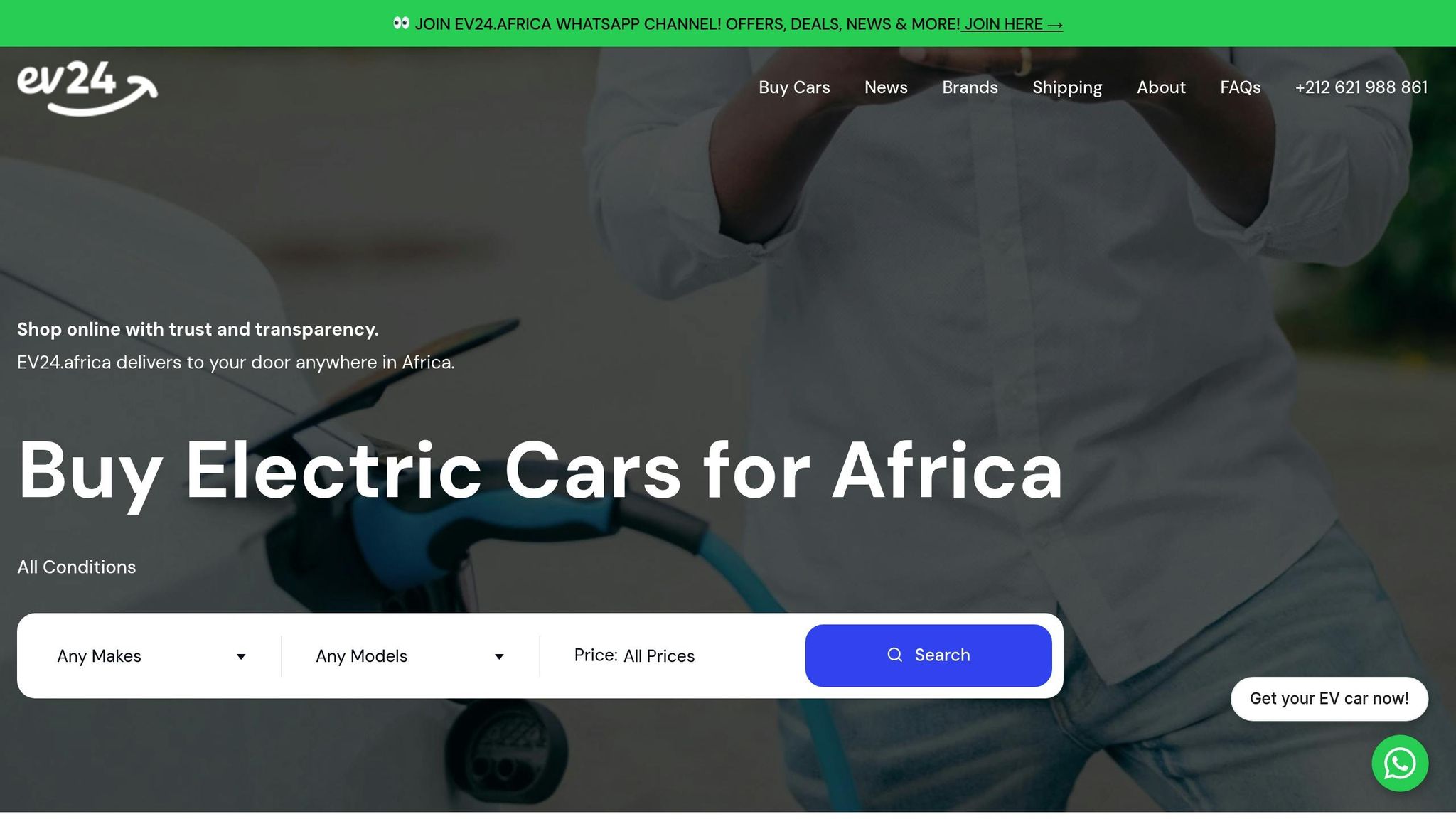
EV24.africa is an online platform that simplifies buying electric vehicles in Zambia. They feature a variety of leading brands, including Tesla, BYD, Leapmotor, ROX, Dongfeng, Toyota, and Suzuki. The platform handles shipping, customs clearance, and local registration, making the process hassle-free.
They also offer transparent pricing and flexible payment plans. For instance, the BYD ATTO 3 2025 is listed at $47,500, while more affordable options like the GEELY PANDA MINI BASE start at $5,880. Other examples include the ZEEKR 009 at $85,000 and the BYD DOLPHIN ACTIVE at $11,800.
EV24.africa allows buyers to compare vehicle specifications, explore financing options, and complete their purchase – all online. Additionally, their delivery and after-sales services enhance the overall experience, ensuring buyers feel supported even after the vehicle arrives.
| Platform/Dealer | Brands Offered | Services Provided | Location |
|---|---|---|---|
| EV24.africa | Tesla, BYD, Leapmotor, ROX, Dongfeng, Toyota, Suzuki | Online browsing, price comparison, financing, delivery, after-sales support | Online platform |
| Pilatus Electric Mobility Zambia Limited | BYD | In-person sales, financing, after-sales service | Lusaka |
| CFAO Mobility Zambia | Toyota (hybrid/EV) | In-person sales, service, warranty support | Lusaka |
| Private Sellers/Importers | Various (used/new) | Direct sales, limited support | Varies |
Delivery and After-Sales Support
One standout feature of EV24.africa is their nationwide door-to-door delivery, which includes warranty and charging support. On the other hand, traditional dealerships like Pilatus and CFAO Mobility focus on localized after-sales services, offering official warranties, regular maintenance, and genuine parts.
When choosing where to buy, it’s essential to think beyond the initial purchase. Reliable after-sales support and ongoing maintenance are key factors in ensuring a smooth and enjoyable EV ownership experience.
Planning Your Electric Car Purchase in Zambia
Main Points to Remember
As Zambia’s electric vehicle (EV) market continues to grow, fueled by supportive government policies, there are a few things to keep in mind when planning your purchase. Start by assessing your daily driving habits and the availability of charging stations, whether at home or work. This will help you choose the right EV model for your lifestyle.
It’s also a smart move to explore financing options. Compare offers from various dealerships and platforms to secure terms that align with your budget and needs. With the market evolving, these steps can help you make the most of the financial and environmental perks that come with owning an EV in Zambia.
Benefits of Switching to Electric Cars
Switching to an electric car comes with clear cost advantages. EVs are known for their lower operating costs, thanks to reduced charging and maintenance expenses, which can lead to significant savings over time.
On top of that, EVs contribute to a cleaner environment. Since they produce zero tailpipe emissions, they can play a role in improving air quality, especially in urban areas like Lusaka. Combined with government incentives and the promise of reduced running costs, these factors make transitioning to an electric vehicle a compelling choice in Zambia.
FAQs
How are Zambia’s government policies supporting electric vehicle adoption, and what do they mean for consumers?
Zambia’s government has taken bold steps to encourage the adoption of electric vehicles (EVs). They’ve eliminated customs duties on EVs, electric motorcycles, buses, trucks, and essential accessories like charging equipment. Additionally, excise duties on hybrid vehicles used for passenger transport have been reduced.
These initiatives have significantly lowered the cost of EV ownership, making them much more accessible – especially for those considering used imports. The impact has been striking, with EV registrations skyrocketing by over 300% in just two years. For Zambian consumers, this translates to reduced upfront costs and greater access to cleaner, more sustainable transportation options.
How is Zambia using its mineral wealth to boost electric vehicle production, and what impact could this have on the economy?
Zambia is leveraging its abundant mineral wealth, especially copper and cobalt, which are critical components in electric vehicle (EV) battery production. By prioritizing local mining and processing of these resources, the country is carving out a role as an important contributor to the EV supply chain in the region.
This approach holds promise for strengthening the local economy by generating employment opportunities in mining, manufacturing, and other connected sectors. Additionally, it could draw in foreign investments and introduce advanced technologies, setting the stage for Zambia to become a central hub for sustainable transportation initiatives in Africa.
What factors affect the cost of electric cars in Zambia, and how can buyers choose the right one?
The price of electric cars in Zambia is shaped by several factors, such as import duties, taxes, vehicle age restrictions, and how accessible local charging infrastructure is. These elements can affect not just the initial purchase price but also the ongoing costs of owning the vehicle.
When considering buying an electric car, it’s essential to do your homework. Look into current government policies, calculate the total cost of ownership – including import fees, VAT, and maintenance – and see if there are any incentives or subsidies that could reduce expenses. Additionally, choose a model that fits your budget and works well with Zambia’s charging infrastructure to ensure convenience and long-term practicality.


